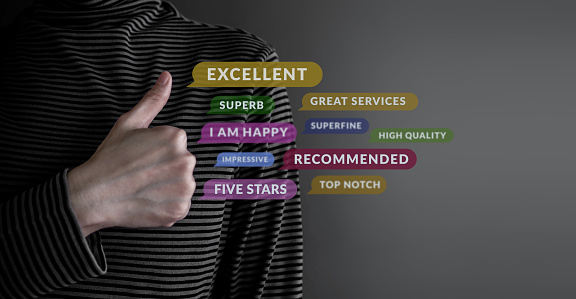Some of my clients sell services, others sell products.
While selling a product can feel more transactional, often with a one-time purchase, selling a service requires more nuance. Without a tangible product, you’ll need to sell prospective customers on the vision that your service will improve their life or business.
- Focus on building relationships instead of selling.
This may sound counterintuitive, but it’s important to develop a rapport with your potential customers. Chances are, people aren’t going to buy as soon as you first meet them, or when they first visit your website. So, you shouldn’t approach it as giving one pitch and you’re done. Instead think about how you can build a long-term connection with the customer that results in them purchasing your service.
You’ll need to ask questions to find more information about their needs and wants. From there you can start to connect the dots about which attributes of your service might be the most beneficial for their specific problems. Customers should think you have their best interests in mind before buying.
- Use customer testimonials to build trust.
When customers buy a service, they’re doing it based on the potential success they believe they’ll achieve through using it. There isn’t a tangible product for them to look to for reference. So, if you have existing customers that are happy with your service, ask them for a testimonial. Testimonials can help you gain the trust of your potential customers, especially if it’s a well-known brand speaking to the benefits of using your service.
With testimonials, potential buyers can see themselves in your existing happy customers. They can look to see if their organisation has a similar business model and better understand how your service could work for them. Testimonials help build trust with customers by establishing your business as an authority or expert in the field, and will help persuade them to choose you over other service providers.
- Emphasise your service’s value.
You can talk about how great your service is, but if you don’t drive home why customers should buy it, you’re wasting your time. Once you’ve built a relationship with potential customers and figured out their pain points, communicate how using your service will resolve their issues and remove obstacles. Are there processes your service can simplify? Will using your service save them money or time? If so, talk about it, and give a detailed explanation about how.
Successfully selling a service will largely depend on how well you can communicate its value to potential customers. You’ll need to help them visualise how your service will improve their lives or business.
Can anyone learn to sell?
Absolutely! It just requires the right mindset, plus the willingness to practice and work on your approach until you get it right. In my book It’s All About The Value I provide an introduction to the key skills and techniques anyone can use to sell effectively without coming across as the stereotypical “pushy sales person”. People who excel in sales don’t approach it as a one-off transactional arrangement.
Once you understand that selling needs to be a continuing process that never ends, your results will improve.
How do I become good at selling?
The ability to sell anything comes down to knowing your buyer and the critical sales methodologies to reach them.
If you’re struggling to sell, or simply want to improve, then take a look at our online, on demand sales training programme EPIC Selling, or perhaps an ongoing sales coaching programme would help you learn and continue to develop your skills.
Don’t forget to subscribe to receive regular tips and ideas via the form below!
